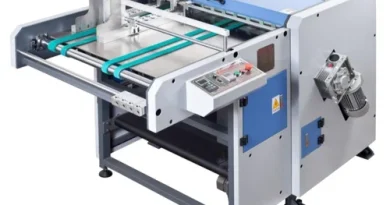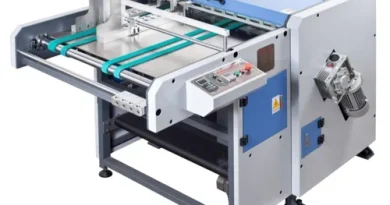Grooving Machines: The Keystone of Industrial Transformation
In the contemporary landscape of manufacturing and construction, the significance of grooving machines is increasingly paramount. Grooving machines, by etching precise grooves into materials, facilitate joining and assembly processes, thereby boosting industrial efficiency. This article will discuss the functions, application areas, and industrial importance of grooving machines.
The Fundamental Function of Grooving Machines
Grooving machines are specially designed for creating grooves on various materials such as metal, wood, plastic, and concrete. Known for their ability to make precise cuts, grooving machines ensure parts fit together perfectly, becoming an indispensable part of modern production processes.
Industrial Applications of Grooving Machines
Grooving machines have a broad range of industrial applications. From automotive to aerospace, and from construction to furniture manufacturing, the contribution of grooving machines is substantial. For instance, in the automotive and aerospace sectors, grooving machines facilitate the necessary precision and fit for parts and components. Similarly, in construction, grooving machines enhance pedestrian safety by creating grooves on concrete surfaces, while in furniture manufacturing, they enable the production of aesthetically pleasing and functional grooves.
Grooving Machines and Technological Advancement
Technological advancements in grooving machines have made them even more effective. Equipped with CNC (Computer Numerical Control) technology, grooving machines can perform highly precise and repeatable cuts, thanks to their programmability. This extends the utility of grooving machines, significantly improving efficiency and quality in production processes.
The Future of Grooving Machines
The future looks bright for grooving machines. With ongoing technological evolution, grooving machines will become even more precise, faster, and efficient, further solidifying their role in industrial production. Moreover, with increasing demand for sustainable production practices, grooving machines will play a crucial role in enhancing energy efficiency and material savings, thereby reducing environmental impact.
Conclusion
Grooving machines play an indispensable role in modern industries. Their precision cutting capabilities, wide range of applications, and adaptability to technological advancements make grooving machines a key factor in enhancing productivity and quality in the manufacturing and construction sectors. The ongoing evolution of grooving machines is set to expand industrial capacity while paving the way for more innovative and sustainable production methodologies.


